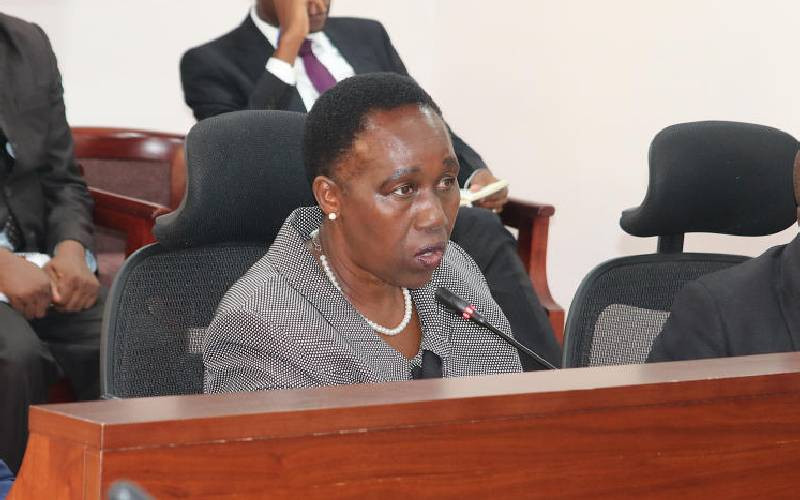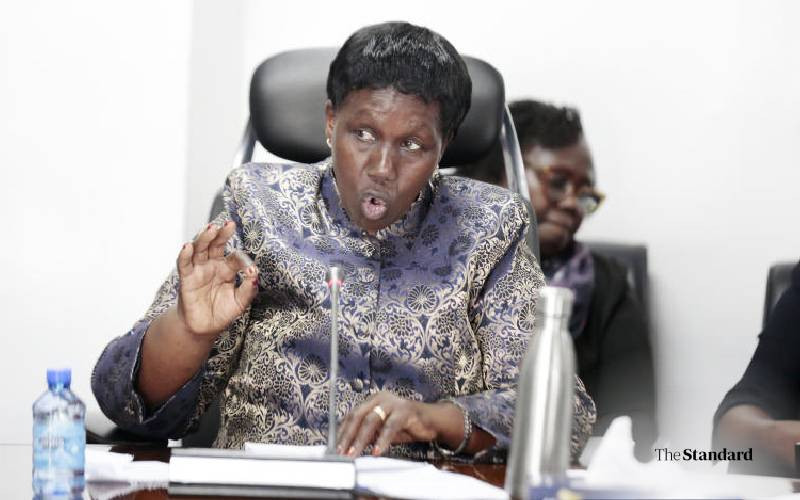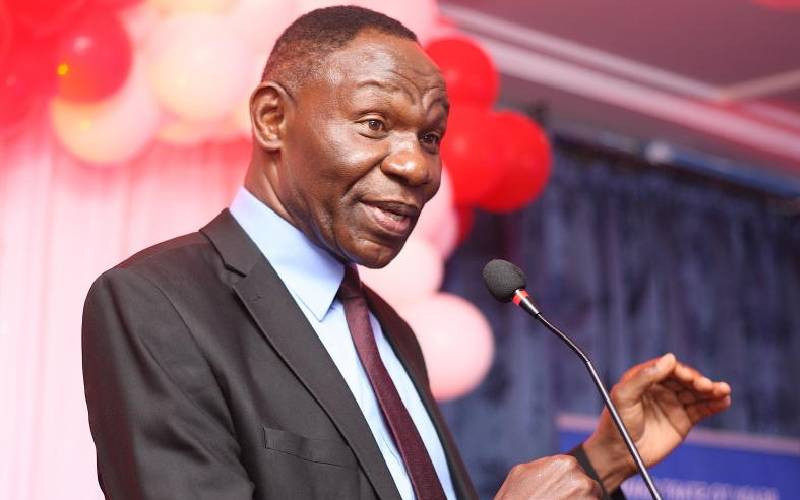Mr. President, Kenya is like a sick patient who does not look sick from the outside but extremely sick from inside. The rate at which the sickness is increasing Kenya’s high wage bill, unemployment and high cost of living notwithstanding corruption will soon collapse our beloved country.
Kenya’s current wage bill stands at 53 percent of the national budget and uses 55 percent of the country’s revenue collection. This is way beyond the accepted international standard for sub-Saharan Africa, which is 34 percent. As a priority your government must exercise prudent management of the public finances, especially the overall wage bill. Today the recurrent expenditure is reaching unsustainable levels, squeezing out resources meant for development.
Your government must keep the public wage bill in check. Your government needs to spark an industrial revolution in our country. Within the next few years, we must add value to our produce and manufacture goods here in Kenya that we increasingly use in our homes and businesses.
The government needs to check corruption and wastage of public resources. Annually a third of the government’s total expenditure goes to waste. The government has already been told by its chief financiers that what it needs is radical surgery which we haven’t seen yet.
Downsize the public service, review salaries to match productivity and tame corruption. This will salvage Kenya but the question is, does the government have the will to bite the bullet and live with the consequences? The jury is out. Mr. President, please address such matters in your state of the nation. There are too many staff who are eating salary resources, leaving little for development. Public Service Commission ought to review the capacity and assign staff accordingly.
The latest report released by London-based Economist Intelligence Unit (EIU) says in a new listing of the world’s most expensive places to live in that there is a steep rise in the cost of living in Kenya in the past 12 months. It has seen Nairobi dethroning Lagos as Africa’s most expensive city.
The rapid increase in consumer good prices linked to new taxation measures propelled the Kenyan capital to the top spot on the continent, ahead of Côte d’Ivoire’s Abidjan. The ranking, which is based on the cost of living, is important because it determines a city’s ability to attract and retain foreign investment; expatriates and tourists.
EIU says highly priced consumer goods have eroded the quality of life for millions of Nairobi residents than the previous year when the city ranked 174 in the quality of living index prepared by Mercer, an international human resource consultancy. EIU has placed Nairobi in the 177th position in the quality of living index. This steep change should catch the attention of Kenya’s policy makers, especially over its possible impact on the quest to become East Africa’s commercial hub.
Dr. Njenga, Solomon Ph.D
Dean - School of Governance, Peace and Security
Africa Nazarene University, Kenya
 The Standard Group Plc is a
multi-media organization with investments in media platforms spanning newspaper
print operations, television, radio broadcasting, digital and online services. The
Standard Group is recognized as a leading multi-media house in Kenya with a key
influence in matters of national and international interest.
The Standard Group Plc is a
multi-media organization with investments in media platforms spanning newspaper
print operations, television, radio broadcasting, digital and online services. The
Standard Group is recognized as a leading multi-media house in Kenya with a key
influence in matters of national and international interest.
 The Standard Group Plc is a
multi-media organization with investments in media platforms spanning newspaper
print operations, television, radio broadcasting, digital and online services. The
Standard Group is recognized as a leading multi-media house in Kenya with a key
influence in matters of national and international interest.
The Standard Group Plc is a
multi-media organization with investments in media platforms spanning newspaper
print operations, television, radio broadcasting, digital and online services. The
Standard Group is recognized as a leading multi-media house in Kenya with a key
influence in matters of national and international interest.





